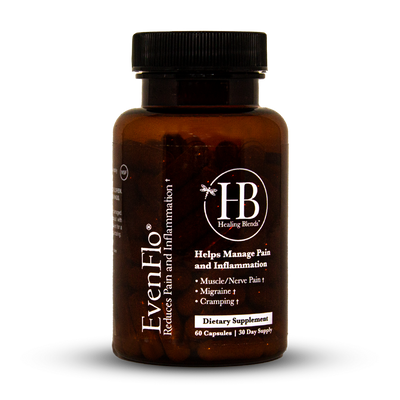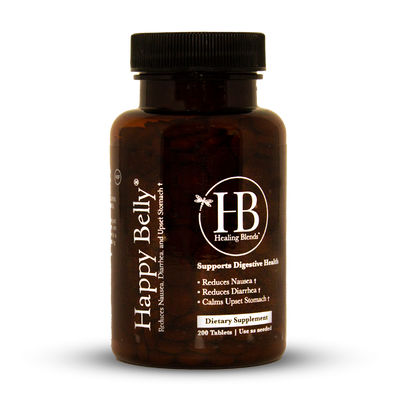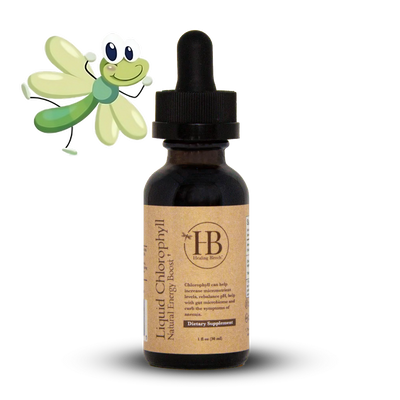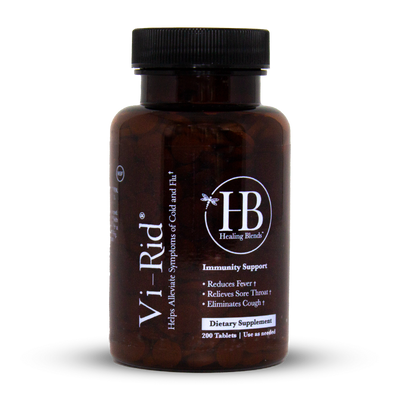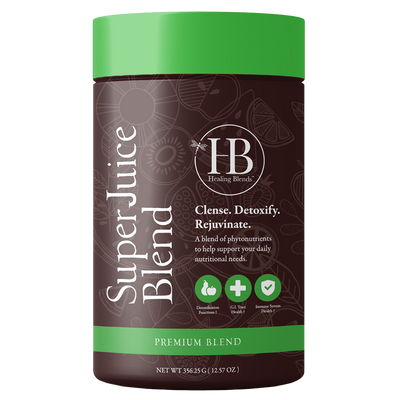Uncovering The Gut-Immune Connection
Did you know that the gut contains the largest number of immune cells in the human body? When you think about it, it makes perfect sense!
Having these immune cells on stand-by in the gut is handy whenever we eat or drink something contaminated. These ever-ready guards will take action and kill off the invaders before they become anything serious.
The presence of these immune cells in the gut makes the gut-immune connection and offers a new angle on how we view and treat our immune system.
In this article, we are going to break down the gut-immune connection, explain why a balanced gut microbiome is important, and discuss how you can maintain a healthy gut microbiome.

Gut microbiome: The community of microorganisms in your gut
Over 100 trillion microbes are living inside your gut. These microbes include bacteria, fungi, viruses, and protozoa. Together, they are called the gut microbiota. The gut microbiome is connected to your body’s overall health and significantly affects your immune system.
The gut microbiome encompasses more than these microorganisms. It includes the gut microbiota, the genes they carry, the signals they produce, and the entire gut environment. These elements make up the community of your gut microbiome.

Breaking down the gut-immune connection
The gut-immune connection is the relationship between the gut microbiome and the immune system in protecting the body from diseases while simultaneously producing vitamins and new healthy tissues.
Breaking down the gut’s effect on your body’s innate and adaptive immunity can further help you understand their relationship.
The gut and innate immunity
Innate immunity is the body's initial defense against a wide range of pathogens and foreign substances. The gut significantly supports this crucial system with its complex structure and diverse microbial population.
The gut's role in our natural defense system can be broken down into a few key parts:
- Protective barrier: The gut's intestinal lining forms a protective barrier with layers of mucus and various cells, blocking harmful pathogens from entering the body. This barrier prevents pathogen entry and nurtures beneficial gut bacteria crucial for health and immunity.
- Regulation by gut microbiota: Beneficial bacteria regulate the functionality of the intestinal barrier, ensuring the gut remains healthy. They play a key role in maintaining the integrity and proper function of the protective mucus layer.
- Production of antimicrobial substances: Gut bacteria help produce antimicrobial peptides (AMPs), like α- and β-defensin, that directly fight off harmful pathogens. Secreted IgA (sIgA) antibodies are produced to neutralize threats by preventing harmful microbes from adhering to the gut lining.
- Mucin secretion: Beneficial microbes influence the secretion of mucins, which is critical for forming the mucus layer that acts as a nourishing substrate for these microbes and as a physical barrier against pathogens.
- Immune response modulation: The gut microbiota plays a significant role in modulating the overall immune response, ensuring it is effective against threats without being overly aggressive, which could lead to inflammation or autoimmune diseases.
- Influence on immune cell function: The gut environment, shaped by its microbiota, affects the function of various immune cells, including those producing AMPs and sIgA, crucial for the immediate response to invading pathogens.
The gut and adaptive immunity
Adaptive immunity is the body's tailored defense system, honed to combat specific pathogens encountered in the past. With its intricate structure and diverse microbial community, the gut plays a crucial role in bolstering and fine-tuning this precise immune response.
The gut's involvement in our adaptive immune system encompasses several vital functions:
- Support for immune memory: The gut microbiota interacts with the adaptive immune system to help the body remember past infections. This interaction facilitates a quicker and more effective response upon re-exposure to the same pathogens.
- Differentiation and regulation of immune cells: The gut environment influences the development and function of immune cells central to adaptive immunity, such as T and B lymphocytes. T cells help direct the immune response, while B cells are responsible for antibody production.
- Antibody production: Gut-associated lymphoid tissue (GALT) is the body's largest collection of immune cells, where B cells produce antibodies specific to pathogens encountered by the gut. This process is critical for creating a tailored defense against repeat offenders.
- Promotion of regulatory t cells: The microbiota fosters the development of regulatory T cells (Tregs), which help prevent autoimmune reactions by distinguishing between the body's own cells and foreign invaders, ensuring that the immune response is balanced and targeted.
- Microbial antigen presentation: Certain gut microbes can present antigens to immune cells, teaching the immune system about potential threats and how to recognize them. This helps in fine-tuning the body's immune response to specific pathogens.
- Production of short-chain fatty acids (SCFAs): Fermentation of dietary fibers by gut bacteria produces SCFAs, which have been shown to influence the differentiation and function of immune cells, including enhancing the production and function of Tregs and modulating the inflammatory response.

Keep the balance, keep the peace
The gut microbiota and the immune systems work together to keep us healthy, a slight imbalance in the gut microbiome can pave the way for many health diseases.
A disorder may arise if there is an overgrowth of bad bacteria, called microbiome dysbiosis. For example, when you eat too much sugar, harmful bacteria like Clostridium difficile will flourish.
Clostridium difficile is a bacterium that causes severe diarrhea and colitis and feeds off sugar. When high-sugar foods are part of your daily diet, the Clostridium difficile in your gut feeds on them and later multiplies and overpowers the other bacteria.
This overgrowth can lead you to develop health issues related to Clostridium difficile, such as severe gastrointestinal infections. This is just one of hundreds of opportunistic, harmful bacteria waiting to overtake the gut and your health!
That’s why an emphasis is always placed on keeping your gut microbiome balanced. How do you do this? By making simple lifestyle and dietary changes.

Maintaining a healthy gut microbiome: It’s simpler than you think
A healthy gut is described as having a balanced and diverse microbiota. You don’t need expensive supplements, detoxes, or complicated processes to achieve this. In fact, you can start by leveling up what you eat and your lifestyle.
Eat more fiber-rich foods
Add more fiber-rich foods to your diet, such as fruits, vegetables, whole grains, and legumes. Fiber serves as food for your beneficial gut bacteria and helps in promoting their growth and diversity.
Dietary fiber acts as a prebiotic or food for these good bacteria. By feeding them, you encourage their growth and activity, which contributes to a more diverse and balanced gut flora.
Lower sugar intake
Reduce your intake of sugars and processed foods. Highly processed and sugary food promotes bacterial overgrowth, disrupts the balance of your gut, and potentially leads to health issues.
Be careful, as some sugars are hidden in “no sugar” labeled grocery products by naming them differently. For a safer option, choose whole, unprocessed foods and check the label twice.
Avoid ingredients like high fructose corn syrup, dextrose, maltose, and other names that disguise added sugars.
By choosing foods in their natural state, you can better control your sugar intake and support a healthier gut microbiome.
Sleep more, stress less
Believe it or not, stress and lack of sleep are major factors in aggravating an unbalanced gut. Aim for adequate sleep and manage stress effectively.
Poor sleep and high-stress levels can negatively impact your gut microbiome, so practicing good sleep hygiene and stress-reduction techniques is important.
Be more active
Engaging in regular physical activity is a vital component of maintaining a healthy gut. Exercise goes beyond just keeping you fit.
When you exercise, it's not just your muscles that get a workout but also your internal ecosystem. Studies have shown that regular physical activity can increase the number of beneficial gut bacteria and promote diversity.
If you're just getting back on track with physical activity, don't be overwhelmed. Start simple and manageable – a mere 15-minute walk each day can make a significant difference.
Walking is a gentle yet effective form of exercise that can kickstart your journey towards better gut health.

Conclusion
The gut-immune connection shows how your gut health affects your body's ability to fight off illnesses. To keep this connection strong, you need a balanced gut with good bacteria. Simple things like eating more fiber, cutting down on sugar, staying active, getting enough sleep, and managing stress can help keep your gut healthy.
If you're looking for expert advice on gut health, Dr. Charlie Ware is the person to see. He is a natural medicine physician backed by years of expertise in treating the gut and other disease.
When you work with him, you get reacquainted with your gut and the rest of your body, get to know what makes it in great shape, and switch back to the path of better health.
Book a call with Dr. Ware today and discover personalized steps you can take to improve your gut health and enhance your overall well-being.












